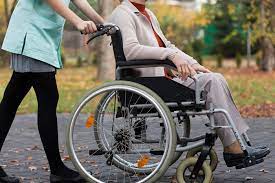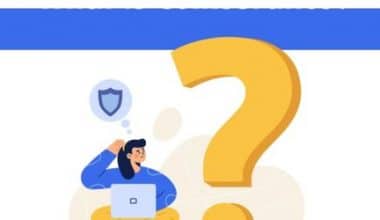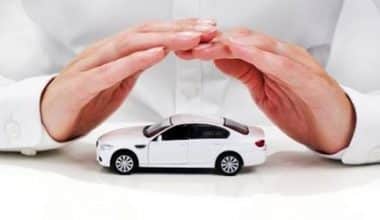Paying off your mortgage early might help you save thousands of dollars in interest. But, before you start throwing money at it, you’ll need to analyze a few variables to see if it’s a good investment. Many homeowners wish to have a paid-off home and achieve financial freedom sooner, but they are often unsure how to do so. Homeowners often make their regular monthly mortgage payments and plan to pay off their mortgages over a 30-year period. However, there are three tried-and-true tactics for paying it off even faster.
If you want to pay off your mortgage quickly, there are several options available to you. Your credit score, cash flow, and financial discipline will frequently determine the best option for you. So, if you’re wondering how to reduce your mortgage payments or pay off your home faster, here are a few tried-and-true methods that can assist. Remember that the best method for you will depend on how much “extra” cash you have on hand as well as how important it is for you to become mortgage-free.
Paying Off Mortgage Early
When you make a mortgage payment, it is divided equally between principal and interest. During the first few years of your loan, the majority of your payment goes toward interest. You pay less interest as you pay down your principal, which is the amount of money you borrowed initially. At the end of your loan, a substantially more significant portion of your payment is applied to the principal. Extra payments can be applied straight to the principal balance of your mortgage. Making extra principal payments minimizes the amount of money you’ll have to pay in interest before it accrues. This can cut years off the length of your mortgage and save you thousands of dollars.
Paying off your mortgage early minimizes the amount you’ll pay over time, but financial experts disagree on whether you should always prioritize paying off your debt as soon as feasible. The decision to pay off your mortgage early is a personal one that is greatly influenced by your unique circumstances. Effective ways to pay off a mortgage early are listed below
#1. Make Additional Payments
Extra mortgage payments can be made in two ways to speed up the payback process. The first option is to divide your monthly mortgage payment in half and pay bi-weekly instead. You’ll wind up making the equivalent of 13 months of mortgage payments in one year, rather than 12, and saving a lot of money in interest. This strategy may be simple for some homeowners because it has little impact on their monthly budget. First, check with your lender or servicer to see if they accept biweekly payments. If not, it is your responsibility to set aside those biweekly installments and combine them into a single monthly payment.
The second method is to make extra payments against the principal each month or to make an extra principal-only payment once a year. It can also save you tens of thousands of dollars in interest throughout the loan’s lifetime. This is a better strategy than refinancing because it does not bind you to a payment. If you are unable to increase your monthly mortgage payment for any reason, you will not be penalized.
#2. Mortgage Refinancing
Refinancing your mortgage to pay it off sooner makes sense only if you can receive a lower interest rate or reduce the loan term. Keep in mind that there are fees associated with refinancing, so make sure the savings outweigh the costs. Has your salary increased? If this is the case, you should think about refinancing for a shorter term. You can save money on interest by refinancing your mortgage without having to worry about fines or extra payments. It also helps you become the complete owner of your home much faster. Remember that refinancing your mortgage to a shorter term will result in higher monthly payments. Before you make that move, do the numbers and make sure you can cover the additional financial burden.
#3. Invest in a Brokerage Account or a High-Yielding Savings Account.
When you make extra payments on your mortgage, the return on that money is roughly equal to the interest rate on your mortgage. Mortgage interest rates are typically much lower than what investors can earn on their assets. Homeowners may be able to pay off their mortgage faster if they invest in a brokerage account or high-yield savings account instead. This technique entails investing your spare payments instead of spending them. By setting up this “mortgage payoff fund,” you keep your money flexible and may be able to earn a higher rate of return.
Calculate Paying Off Mortgage Early
A mortgage payoff amount can be calculated using a formula. To get the daily interest rate, multiply the loan balance by the interest rate and divide by 365. This sum, multiplied by the number of days till the payoff plus the loan balance, provides you with the amount to pay off your mortgage. If you call your mortgage originator, they can perform these calculations for you. Because the figures might be somewhat complicated, this is the easier alternative. Your payout amount will be confirmed in writing by them. You can also use an online mortgage payment calculator. They can tell you the total loan payoff or the current debt.
Knowing your payoff amount lets you realize how much you are paying. It is much easier to arrange your money in the future if you know how much you will owe in total. Finally, it will assist you in saving money on interest over the course of your mortgage and determining how long it will take to become debt free. When you’re ready to return the loan and know how long you’ll need it, you may figure out how to get a repayment quote. Increasing your principal payments can save you a lot of money in interest over time. Overpaying your mortgage lowers the overall cost of purchasing a home.
However, it is critical to properly read your mortgage agreement. There may be additional penalties if you pay it off early. Consider the money you will save on interest vs the additional fees you will have to pay. Overpaying your mortgage can be advantageous at times, but it is not always the case.
Paying Off Mortgage Early Penalty
A mortgage prepayment penalty is a fee charged by some lenders if you pay off all or part of your mortgage loan early. A mortgage prepayment penalty often occurs when refinancing, selling, or otherwise repaying a major portion of a debt. Although prepayment penalties are uncommon nowadays, when they do exist, they can be significant. The penalty can be 2% of your loan balance for the first two years and 1% of your loan balance for the third year.
The notion of a “prepayment penalty” is foreign to many homeowners. Why should you be penalized for repaying a debt ahead of schedule? That’s the thing with mortgage loans: Surprisingly, many of them have prepayment penalties, which limit your freedom and can take a bite out of your pocketbook – simply for attempting to do the right thing for your finances. When researching house loans and determining which sort of mortgage is best for you, keep prepayment penalties in mind. Mortgage prepayment penalties can now be levied only during the first three years of the loan term.
Furthermore, the penalties are limited to 2% of the loan total for the first two years and 1% of the loan balance for the third year. A prepayment penalty will be calculated and charged to you by the lender as a lump-sum cost. It is assessed when you refinance or sell your house and is normally deducted from the sale proceeds. The best way to avoid a prepayment penalty is to avoid loans that charge one. “Request a loan without a prepayment penalty, and thoroughly read over the terms of your loan and paperwork before signing it at closing.” If you are unsure whether a prepayment penalty applies to your current mortgage, contact your mortgage lender or servicer.
Paying Off Mortgage Early Benefits
Before committing to an early mortgage payback program, there are numerous competing financial priorities to consider. There are numerous financial goals that should probably take priority over paying off your mortgage early, such as paying off high-interest credit cards, initiating retirement contributions, and putting in place crucial insurance policies. You must first have a sound financial foundation. It is financially liberating to own a property without a mortgage. Here are just a few of the main benefits:
#1. It Helps You Save Cash.
You save money on interest by paying off your mortgage. This minimizes your monthly expenses as well as the overall cost of owning a property.
#2. A Mortgage Tax Deduction Is Preferable to no Interest.
If you keep the mortgage to get the tax break, you’re paying the bank $1 to get a $0.25 tax break (assuming a 25% tax bracket). You still owe $0.75. When you pay off your mortgage, you pay $0.25 in taxes and keep $0.75.
#3. Ability to Save Up for Retirement
You will acquire the ability to use what was once your mortgage payment to invest in retirement or save for other financial goals. Imagine! You will not only avoid paying mortgage interest, but you will also make money in higher-yielding accounts!
Is There a Downside to Paying Off Mortgage Early?
One of the disadvantages of paying off your mortgage early is the possibility of prepayment penalties. Lenders levy fees when you pay off your mortgage early because it reduces their capacity to make a profit. While prepayment penalties vary, they are typically a tiny proportion of the outstanding loan total.
What Happens When You Pay Off Your Mortgage Early?
Prepayment penalties are typically equal to a percentage of the interest you would have paid. This implies that if you pay off your principal quickly, you may wind up paying more interest than you would have otherwise. Prepayment penalties normally expire after a few years.
How Can I Pay Off My 30-Year Mortgage in 10 Years?
If you double your needed payment, you will pay off your 30-year fixed-rate loan in less than ten years. A $100,000 mortgage at 6% interest requires a monthly payment of $599.55 for 30 years. If the payment is doubled, the loan is paid off in 109 months, or nine years and one month.
- Pay extra each month to pay off your mortgage faster.
- Instead of monthly installments, make biweekly payments.
- Making an extra monthly payment per year.
- Refinance your mortgage to a shorter term.
- Restructure your mortgage.
- Loan consolidation.
- Pay down your other loans.
- Downsize.
At What Age Should House Be Paid Off?
According to Shark Tank host Kevin O’Leary, if you want to live a debt-free life, you must pay off all of your debts. In fact, O’Leary believes it is a good aim to be debt-free by the age of 45, which includes having your mortgage paid off.
Does Homeowner Insurance Go Down When Mortgage Is Paid Off?
No, house insurance isn’t any cheaper if you don’t have a mortgage. Your home is still at risk, just as it was when you were paying down your mortgage. Although you are no longer required to carry a policy if you do not have a lender, very few people recommend discontinuing homeowners insurance once you have paid off your mortgage.
Why Did My Credit Score Drop When I Paid Off My Mortgage?
This is because closing a line of credit reduces your total available credit, which may result in a higher credit utilization ratio. Furthermore, if the account you closed was your oldest line of credit, it could have a negative influence on the duration of your credit history and lower your scores.
Will My Credit Score Go Down If I Pay Off My Mortgage?
A paid-in-full mortgage will appear on your credit reports at the three major credit agencies (Experian, TransUnion, and Equifax) for ten years as a “closed account in good standing.” If you haven’t taken out a new mortgage by the end of that time, your credit ratings may fall slightly due to a smaller credit mix.
Do Extra Payments Automatically Go to the Principal?
In general, national banks will accept additional payments against the main balance of your loan. However, you should consult your loan agreement or contact your bank to learn about their specific process.
How to Pay Off a $100,000 Mortgage in Five Years?
There are several simple actions you may take to pay off your mortgage in about five years.
- Making a larger down payment
- Setting a target date.
- Choosing a shorter term for a home loan
- Making larger or more frequent payments
- Spending less on other things and i
- Increasing income.
Conclusion
The decision to pay off your mortgage early is influenced by a variety of circumstances, including the interest rate on your current loan and your personal risk tolerance. Begin by calculating the opportunity cost. If you pay off your mortgage early, you are putting money into the mortgage you could have used for other financial needs. Of course, you’ll save on interest, but if you invested the extra payments elsewhere instead of on your mortgage, you might have earned a larger return. Making additional payments, on the other hand, can be a good option if you know you’re going to spend that extra money if you don’t put it toward your mortgage.
Related Posts
- PREPAYMENT PENALTY MORTGAGE: How it Works
- Refinancing A Car Loan: Best Easy 2023 Guide & All You Should Know
- WHAT IS REFINANCING: Meaning, How It Works & Purpose






